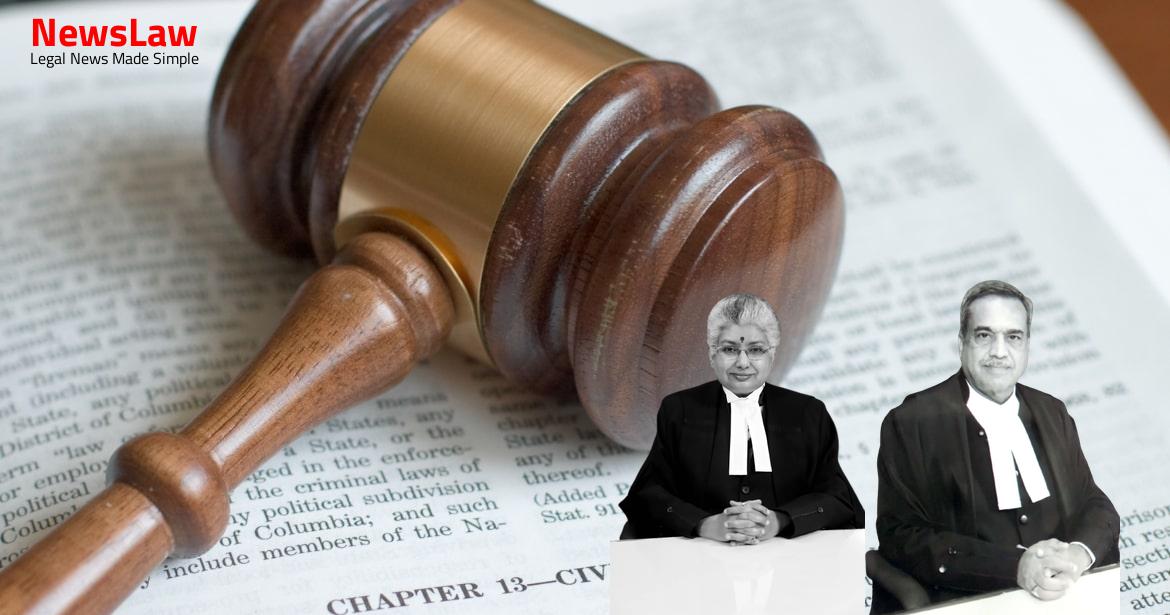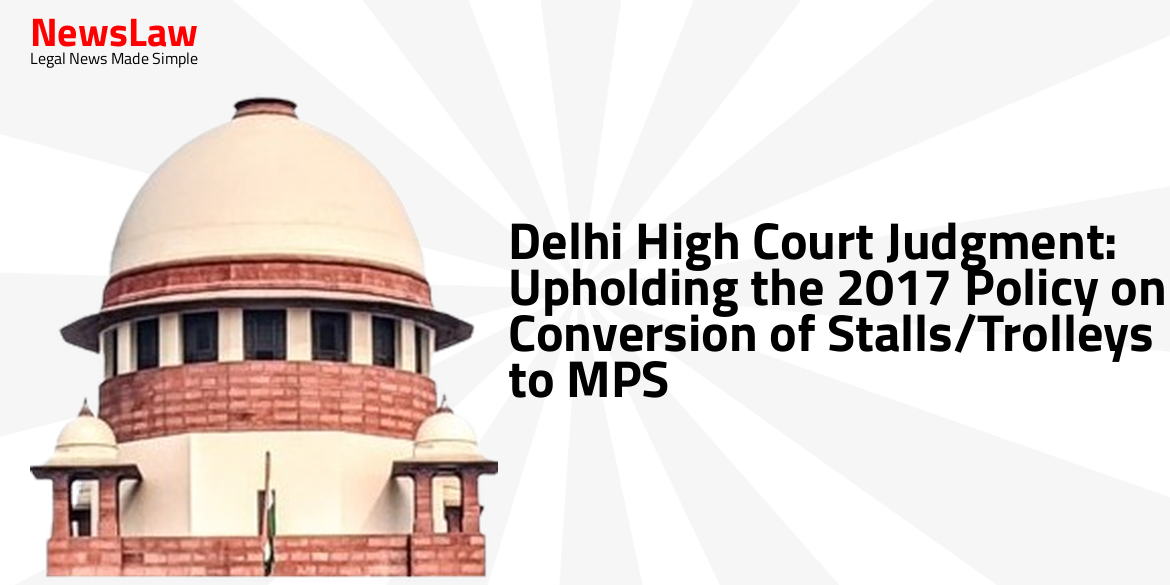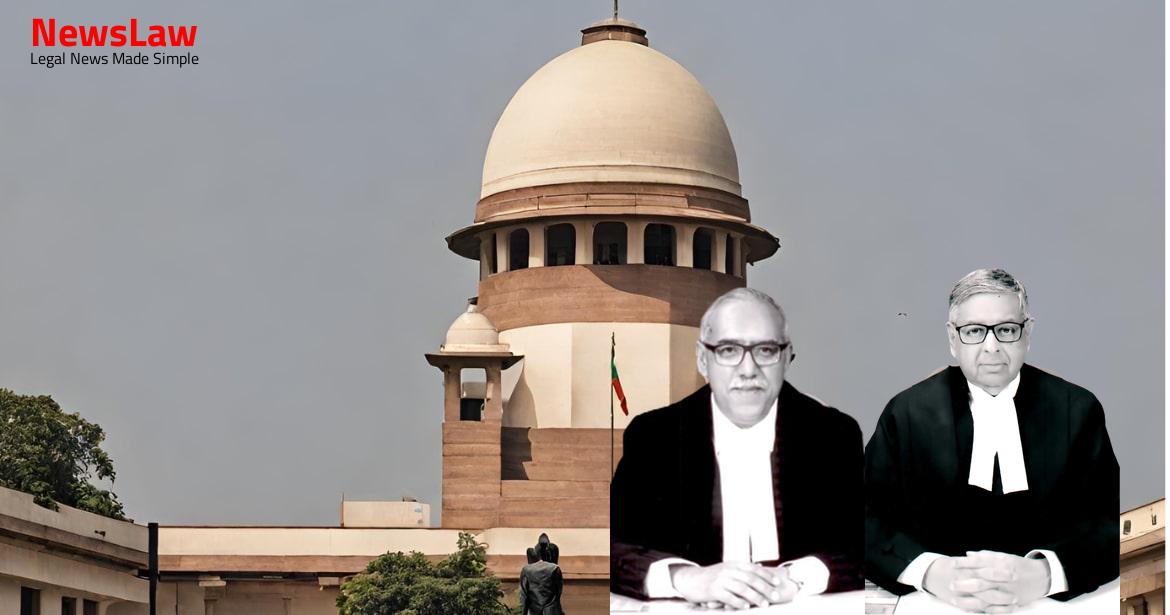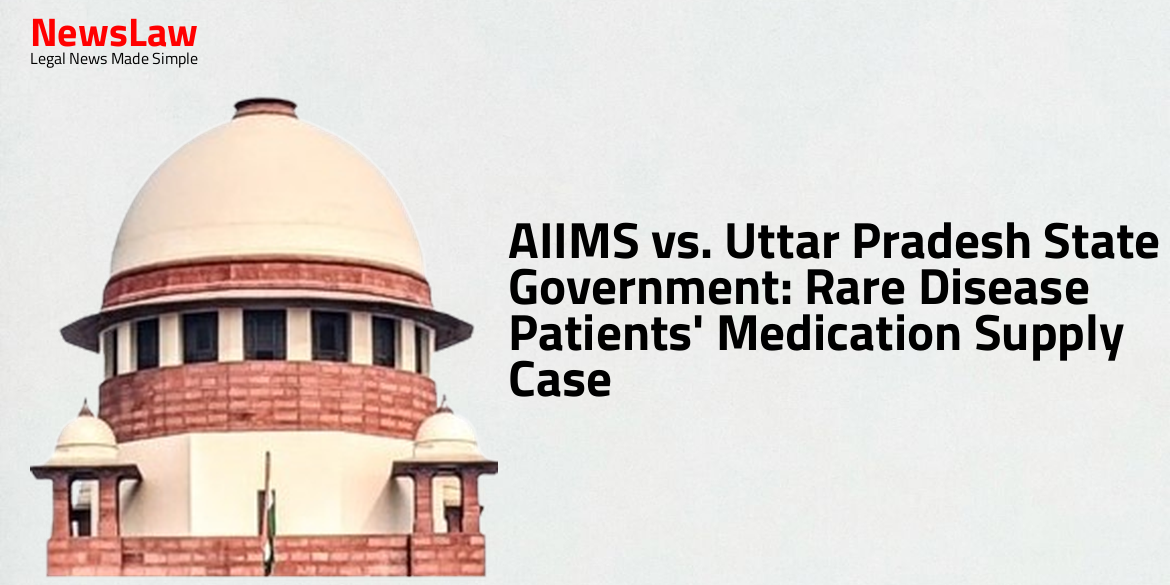The court’s thorough legal analysis delves into the implications of suppressing criminal antecedents in job applications, especially for a constable position. Emphasizing transparency and honesty in employment matters, the court’s scrutiny of the case provides valuable insights into the legal consequences of withholding important information. Stay tuned to learn more about the critical role of full disclosure in job applications.
Facts
- The original writ petitioner was convicted for offences under Sections 341 & 323 read with Section 34 IPC, but later acquitted due to a compromise in FIR No.348/2018.
- Another FIR was registered against the writ petitioner for offences under Sections 341, 323, 382, 427 IPC.
- The High Court dismissed the appeal by the State and confirmed the Single Judge’s order directing the State to consider the writ petitioner for the post of Constable.
- The writ petitioner was charge-sheeted for offences in relation to FIR No.505/2018, but benefited from the Probation of Offenders Act, 1958.
- He was acquitted for certain offences due to compromise and benefit of doubt.
- The original writ petitioner applied for a post and submitted the application form with a signed declaration stating no concealment of criminal record or pending FIRs.
- The candidature of the original writ petitioner was rejected based on suppression of the material fact about a pending FIR (No.458/2007) against him, which he did not disclose in the Job Application Form.
- Another FIR (No.102/2012) was later registered against the original writ petitioner, further highlighting his criminal antecedents.
- Despite facing criminal proceedings, the original writ petitioner had stated in the Job Application Form that there were no criminal antecedents against him.
- The rejection of the original writ petitioner’s candidature was based on the incorrect information provided in the application form.
- The original writ petitioner had cleared the written and physical tests but was later found to have another FIR (No.348/2018) registered against him.
- The provision stated that if the information provided in the application form was found to be wrong or incomplete, the form could be rejected at any stage of the selection process.
Also Read: Ruling on Circumstantial Evidence in Murder Case
Arguments
- State justifies rejecting the petitioner’s candidature as a constable based on his suppression of criminal antecedents.
- Petitioner suppressed the fact of facing criminal prosecution in the job application form.
- State argues that a candidate who suppresses material facts and makes false statements is not fit to be appointed as a constable.
- State appeals against the High Court’s decision to consider petitioner for the constable post.
- State highlights that additional criminal cases have been filed against the petitioner, making him unsuitable for the position.
- Petitioner’s counsel argues that the offenses were trivial and the petitioner was acquitted or granted probation in some cases.
- Petitioner’s counsel states that honesty is crucial for a constable, and the High Court’s decision to consider the petitioner’s appointment was correct.
- The Single Judge and Division Bench both agreed on directing the State to consider the original writ petitioner for the post of Constable.
- They provided cogent reasons for their decision, which should not be interfered with by this Court.
- This is in exercise of powers under Article 136 of the Constitution of India.
Also Read: Challenging Legal Presumptions in Negotiable Instrument Cases
Analysis
- Candidate’s suppression of material information and giving false information disqualifies him from claiming any right for appointment or continuance in service.
- The candidate’s character verification report played a vital role in the rejection of his candidature.
- The offences’ trivial nature is not the main issue; the suppression of the offences in question is what matters.
- Rule 14 of the Central Reserve Police Force Rules, 1955, relates to verification and was relevant in this case.
- The duty of a constable is to maintain law and order, hence a higher level of integrity is expected.
- The employee in question suppressed material facts of his criminal antecedents and hence was discharged.
- The principle from State of A.P. v. B. Chinnam Naidu is cited, stating the importance of character verification for suitability in service.
- The candidate’s false statement about not facing any criminal case led to the rejection of his candidature for the constable post.
- The presence of multiple FIRs against the candidate further solidifies the decision to reject his candidature.
- Verification of character, antecedents, connections, and age of individuals upon enrollment in accordance with procedures set by the Central Government is necessary.
- Verification roll to be sent to the District Magistrate or Deputy Commissioner of the District of the recruit’s residence.
- The verification roll should be in CRP Form 25 and attached to the character and service roll of the force member after verification.
- Purpose of the verification is to assess the character and suitability of the candidate for the position.
- Candidates are required to answer the questions in the verification process truthfully and comprehensively.
- The employer has the right to consider antecedents of a candidate even if a truthful disclosure about a concluded case was made.
- Suppression of material information or giving false information can lead to termination of service, even if the individual was acquitted or discharged.
- Employers have discretion to terminate services if a candidate suppressed material information or gave false information, affecting credibility and trustworthiness.
- Employers may refuse employment if a criminal case disclosed by the candidate is of a nature that affects fitness for the job.
- Employers can ignore past criminal cases if they do not affect the candidate’s fitness or if the candidate was honorably acquitted.
- Candidates giving false answers or suppressing material information may be refused employment or discharged even if acquitted later.
- Employers seeking information on antecedents aim to assess the candidate’s character and suitability for the job.
- Suppression or non-disclosure of material information can be a reason for not employing a candidate.
- Deliberate false statements or omissions regarding vital information can be seriously viewed, especially for uniformed services.
- Candidates’ services can be terminated for filing false declarations even if subsequently granted benefits under laws.
- Suppressing information about a pending case is seen as moral turpitude, affecting eligibility for employment.
- Employers may discharge employees or refuse employment based on suppression of material information or false statements regarding criminal prosecution or conviction.
- Employers have the right to consider antecedents of candidates, regardless of whether a truthful disclosure was made about a concluded case.
- The High Court erred in directing the State to consider the respondent for appointment as a constable.
- The judgment and order of the High Court is unsustainable both on facts and law.
- The High Court decision is quashed and set aside.
- The respondent’s candidature for the constable position was rightly rejected.
- The respondent cannot be appointed to the position of constable.
Also Read: Legal Analysis Critique in High Court’s Quashing Order
Decision
- The present appeal is allowed.
- The judgment is in accordance with the law.
Case Title: THE STATE OF RAJASTHAN Vs. CHETAN JEFF (2022 INSC 556)
Case Number: C.A. No.-003116-003116 / 2022



